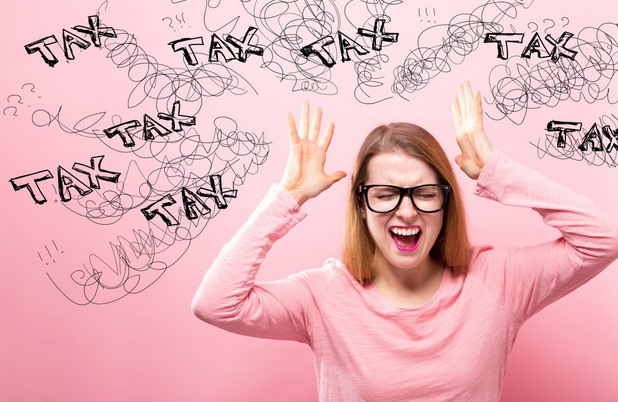6 Tips For Getting Through Tax Time
- Written by NewsCo Media

If filing your taxes gives you angst or simply drives you nuts, we’re here to tell you that you’re not alone. Every year, millions of Australians scramble at the eleventh hour to ensure that they meet tax deadlines in order to keep themselves out of hot water with the ATO. The truth is, tax is an unavoidable part of life that we have no choice but to deal with, which is why staying organised and remaining steadfast is essential. In today’s article, we look at 6 tips for getting through tax time, so read on to find out more!
Don’t Forget Those Donations
Although it is widely known that many donations are tax-deductible, for some reason come tax time, a lot of people seem to forget about all the donations they’ve made throughout the year. You can blame it on stress or simply forgetfulness, but one thing you definitely want to get organised is a list of your tax-deductible donations. Remember -- to claim your return, you will need to have a record of your donation in the form of a receipt, so staying organised throughout the year is key. Every time you make a tax-deductible donation, we recommend filing it immediately so that come tax time, you already have everything you need to make your claim.
Working From Home? No Problem!
If you have spent most of the year working from home, it is important to note that you may be eligible for a significant tax deduction if you meet the ATO’s specific criteria. In a nutshell, anyone who is working from home or claiming expenses for a home office will have to keep a diary of the hours worked at home for at least one month. You will also need to prove that you have a dedicated office space (usually a spare room) in your home that is used solely for work purposes. Some of the home office costs that you may be able to claim include office equipment, electricity, cooling, heating and water bills.
Organisation is Key
You’ve probably heard this a hundred times, but keeping all your documents organised not just at the eleventh hour but from the start of the financial year is so incredibly important for anyone who is looking to reduce tax time anxieties. The more organised you are, the less stressful the process will be, which is why you should always organise and file your receipts and records. Whilst everyone’s situation may differ, here is a general list of some of the documents that you will need to have come tax time:
While everyone’s situation is unique, as a general rule, here’s a list of documents to get you started:
- * A copy of last year’s tax return
- * Private Health Insurance information/details
- * Spouse or De-Facto partner details, if applicable
- * Details including date of birth of children, if applicable
- * Comprehensive list of all income received (payment summaries, interest, dividends, foreign income)
- * Comprehensive list of all expenses made (work-related, donated, self-education)
- * Records of sales/purchases of shares, businesses or property, if applicable
Avoid Estimation
Life happens, and sometimes we lose receipts or simply forget to note down important details that can affect our tax return. If you find yourself in such a predicament, the best advice we can give you is to avoid “guesstimation” at all costs as it can result in penalisations for incorrect claims. If you have lost important documents, it is always recommended that you do your best to obtain a copy and that if you are unsuccessful in doing so, you provide evidence that you have tried to the ATO.
Contribute to your super
If you haven’t been contributing to your super recently, now may be the perfect time to do so. The money you put into your superannuation account will reduce our taxable income for the year and the amount will not be taxed until the time of withdrawal. Do be careful that you don’t go above the contribution cap as once you exceed it, your tax advantages won’t apply and your super contributions may be taxed up to over 90%. Yikes!
Call In The Experts
Last but certainly by no means least, if you feel like you’re in over your head when it comes to filing your taxes, we highly recommend calling in the experts. An experienced tax accountant will be able to answer your questions, help get you organised and maximise your returns where applicable. Most accountants charge anywhere between $150-$300 per tax return lodgement, which isn’t too huge a sum all things considered!
Getting ready for tax time is by no means anyone’s favourite thing to do, but by keeping organised and paying attention to some of the points above, you’ll be able to minimise the amount of stress and anxiety you experience when the time comes for you to lodge your tax return.







